Understanding Heavy-duty Trailers
Heavy-duty trailers are sturdy and specialized vehicles crafted to transport large, unwieldy, or heavy loads that regular passenger vehicles are incapable of handling efficiently. These trailers are engineered to manage significantly higher weight capacities and are commonly utilized for commercial, industrial, and personal purposes by individuals needing to move heavy machinery, equipment, or other substantial items that surpass the standard vehicles' carrying capabilities.
The fundamental concept underpinning heavy-duty trailers is their emphasis on strength and durability. They are meticulously designed with diverse materials like steel and aluminum alloys to ensure they can endure the stress and weight distribution associated with their intended use. Additionally, heavy-duty trailers feature multiple axles and reinforced frames to offer stability and support for hefty loads during transportation.
Heavy-duty trailers play a crucial role in various sectors such as construction, agriculture, and manufacturing, where the seamless movement of massive equipment or materials is indispensable. They are indispensable for operations necessitating the safe and efficient conveyance of heavy goods over extended distances. These trailers often incorporate functionalities like hydraulic ramps for easier equipment loading and unloading, as well as air brakes and suspension systems to enhance control and stability.
Diverse Varieties of Heavy-Duty Trailers
Heavy-duty trailers are available in a range of types tailored to different transportation requirements, each with distinct features for specific applications:
-
Flatbed Trailers: These trailers feature an open deck without sides or a roof, offering flexibility in loading and unloading goods. They are widely used for transporting heavy equipment and machinery that can be driven onto the trailer.
-
Lowboy Trailers: Equipped with two drops in deck height (one after the gooseneck and one before the wheels), lowboy trailers can accommodate taller equipment. Their lower center of gravity enhances stability, a critical aspect when moving large machinery.
-
Dump Trailers: Also recognized as tipper trailers, dump trailers feature a hydraulic lift mechanism that enables cargo to be tipped from the trailer bed. They are extensively employed in construction and agricultural settings to transport bulk materials such as sand, gravel, and demolition debris.
-
Refrigerated Trailers: These trailers provide temperature-controlled environments and are ideal for transporting perishable goods. They are indispensable in industries like food and pharmaceuticals where maintaining precise temperatures is paramount.
-
Tanker Trailers: Specifically designed for carrying liquids or gases, tanker trailers are fitted with cylindrical tanks and find application in sectors such as fuel transport, chemical hauling, and food delivery.
Choosing the Right Heavy-duty Trailer
Opting for the appropriate heavy-duty trailer is essential for businesses seeking to address specific requirements within their operations. Here are some factors to consider:
-
Payload Capacity: Evaluate the weight and dimensions of the loads you plan to transport. Ensure the trailer has adequate capacity to accommodate them without exceeding the limit.
-
Material Durability: Opt for trailers crafted from high-strength steel or aluminum for longevity in challenging conditions. These materials offer exceptional durability and load-bearing capabilities.
-
Braking System: Heavy-duty trailers necessitate robust braking systems to ensure safety during stops, especially when carrying heavy loads. Air brakes are commonly preferred for their reliability.
-
Suspension Type: Factor in road conditions and load variations in your area. Select a trailer with a suitable suspension system—such as air ride, leaf spring, or coil spring—to provide adequate support.
-
Hitch Type: Ensure the hitch type aligns with your vehicle's hitch, whether it's a standard ball coupler or a specialized system like a fifth wheel.
By carefully assessing these aspects against your operational needs, you can make an informed choice that aligns with your business objectives.
Exploring Heavy-duty Trailers on Alibaba.com
Alibaba.com serves as a global marketplace that offers a wide array of heavy-duty trailers suitable for diverse business requirements. Whether you operate in construction and require machinery transport or in retail with a need for bulk storage solutions, Alibaba.com provides access to suppliers offering the most suitable trailers for your specific industry needs. The platform's intuitive interface enables you to filter options based on local service availability, core components, machinery test reports, and specific features like high productivity or ease of use.
By selecting Alibaba.com as your sourcing platform, you gain access to services like Trade Assurance—a safeguard for your payments until delivery confirmation—providing reassurance during transactions. Moreover, with suppliers from across the globe showcasing their products on Alibaba.com, you have a wide selection of heavy-duty trailers catering to various applications and design preferences without compromising quality or reliability.
Alibaba.com not only offers diversity but also ensures convenience. Suppliers on the platform provide post-purchase services such as video technical support and access to engineers for overseas assistance, streamlining the buying process. This dedication to facilitating seamless trade experiences positions Alibaba.com as an excellent choice for businesses seeking heavy-duty trailers that meet their operational demands and budget constraints effectively.
Frequently Asked Questions about Heavy-duty Trailers
What are the critical factors to contemplate when choosing a heavy-duty trailer?
When selecting a heavy-duty trailer, consider the load capacity it must support, the trailer's construction material, the intended operating environment, and compliance with industry safety standards. The trailer's design should align with your specific transportation requirements and operational limitations.
How can I determine the suitable load capacity for a heavy-duty trailer?
To ascertain the appropriate load capacity for a heavy-duty trailer, evaluate the maximum weight and volume of materials or equipment you need to transport. Ensure the trailer's load capacity comfortably accommodates these figures to adhere to safety regulations and prevent trailer damage.
What materials are typically used in the construction of heavy-duty trailers?
Heavy-duty trailers are commonly crafted from robust materials like steel, iron, or aluminum to withstand the weight and impacts of heavy items during transit. The choice of material influences the trailer's strength, durability, and cost.
Are heavy-duty trailers suitable for long-distance travel?
Absolutely, heavy-duty trailers are designed for long-haul transportation. They are equipped with features such as reinforced frames, high-load axles, and robust suspension systems that enable them to handle extended travel conditions.
Are there specific regulations pertaining to heavy-duty trailers that one should be aware of?
Indeed, there are industry-specific regulations and safety standards that apply to heavy-duty trailers. Familiarize yourself with these regulations to ensure the chosen trailer complies with all necessary specifications, particularly those concerning load capacity and safety features.
What are common uses of heavy-duty trailers?
Typical applications of heavy-duty trailers include transporting construction materials, agricultural produce, manufacturing equipment, vehicles, mining machinery, as well as waste and recycling materials.
How can I ensure that the heavy-duty trailer I select is suitable for off-road usage?
To ensure a heavy-duty trailer is fit for off-road use, look for trailers equipped with robust tire systems, durable construction materials like steel or iron, and consider additional features such as reinforced undercarriages or suspension systems tailored for rough terrain.
Is it possible to customize a heavy-duty trailer to meet specific business requirements?
Many suppliers offer customization options for heavy-duty trailers, allowing for specific dimensions, load capacities, additional features like ramps or sides, color selections, and branding opportunities.
What should one know about the maintenance needs of a heavy-duty trailer?
Regular maintenance is vital to ensure the longevity and performance of a heavy-duty trailer. This includes tasks like monitoring tire pressure, inspecting the braking system, lubricating moving components, and verifying the trailer's structural integrity.
Are there eco-friendly options available among heavy-duty trailers?
Absolutely, eco-friendly options exist among heavy-duty trailers. Look for features such as lightweight materials and energy-efficient designs that minimize environmental impact while still delivering the requisite strength and durability for demanding tasks.
How does the suspension type impact a heavy-duty trailer's performance?
The suspension type—whether independent or dependent—affects how well a trailer navigates uneven terrain. Independent suspension systems offer superior control and stability by allowing each wheel independent movement, while dependent systems may be more suitable for smoother roads where precise control is less critical.
What after-sales services are typically provided with the purchase of a heavy-duty trailer?
After-sales services for heavy-duty trailers may include online support and video technical assistance. Some suppliers might also offer field maintenance and repair services or access to engineers capable of servicing machinery overseas.
How can one determine if a heavy-duty trailer meets industry safety standards?
To verify if a heavy-duty trailer complies with industry safety standards, review product specifications and certifications. It's crucial to confirm that the trailer features essentials like lights, reflectors, and appropriate braking systems that align with regulatory requirements.








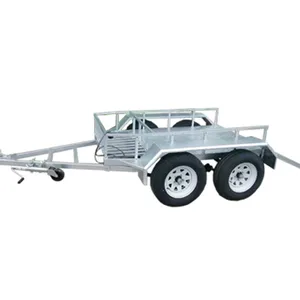




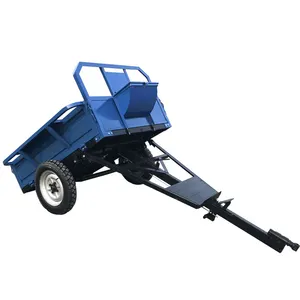

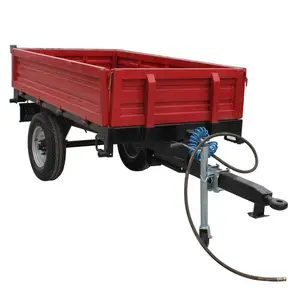



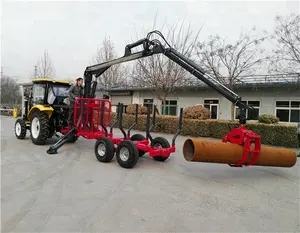





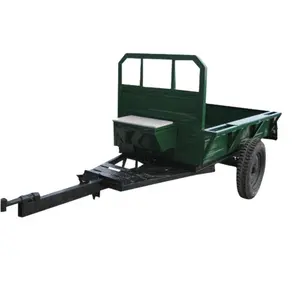





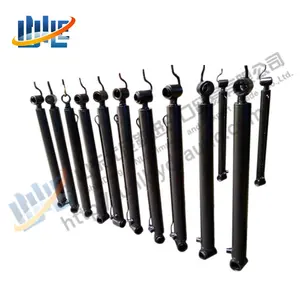
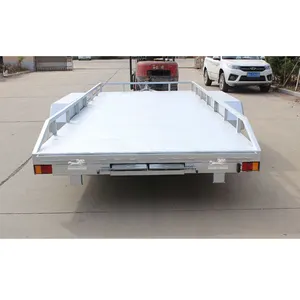



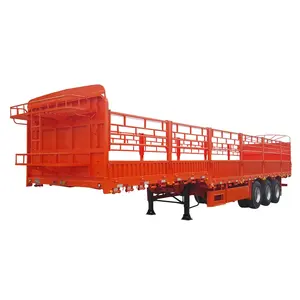

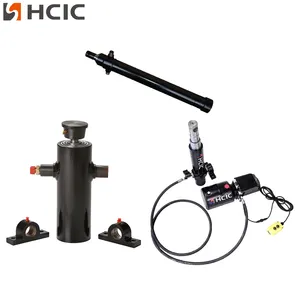



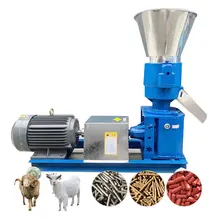

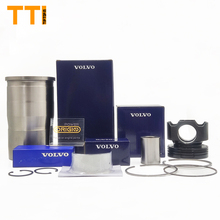
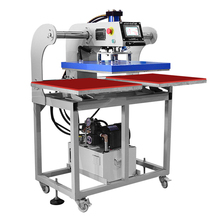






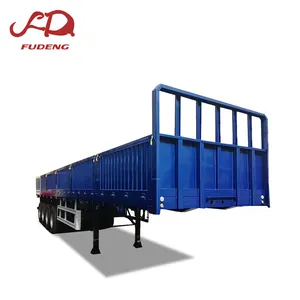
























 浙公网安备 33010002000092号
浙公网安备 33010002000092号 浙B2-20120091-4
浙B2-20120091-4